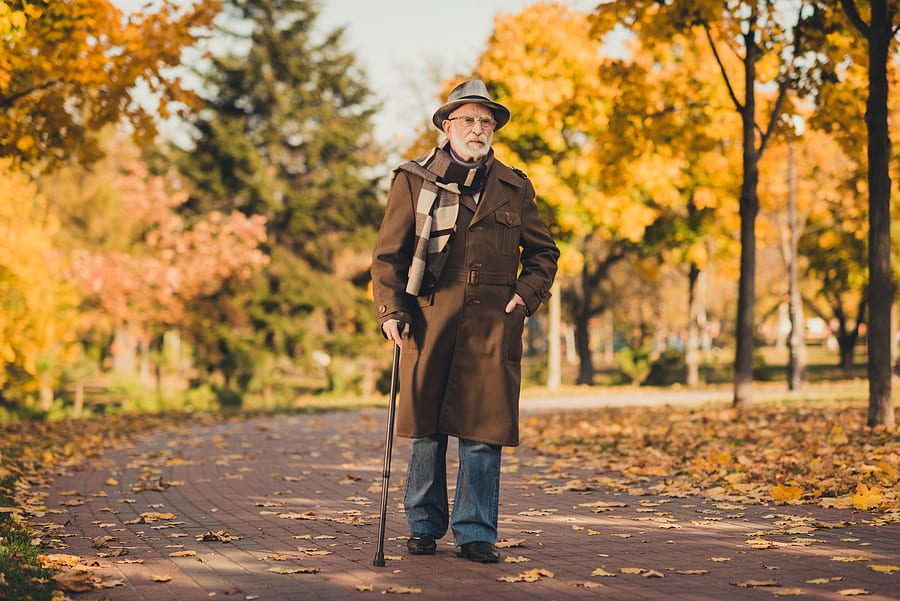As Autumn comes into full swing, it is important to recognize the increased risks of slip-and-falls. Autumn and winter both come with increased fall risks for elderly individuals. This article will explore the factors that contribute to these risks.
Autumn Leaves
Fallen leaves can be a major hazard, especially after it rains. Leaves can slip over surfaces when stepped on. Over wet surfaces, such as after it rains, leaves can slide even further and can seriously injure your loved one. Make sure that your loved one has someone to clean up the leaves outside of their home. Additionally, your loved one should be informed not to go out for a walk during or after the rain, when possible.
Earlier Nightfall
Night comes earlier in the Autumn and Winter months. Reduced visibility during nighttime hours can increase the risk of tripping or slipping. Help your loved one to limit traveling during nighttime hours. Encourage them to get errands done earlier in the day, including scheduled appointments with doctors.
Fall Risks with Ice and Snow
Ice and snow in the winter can be a huge challenge for seniors for a number of reasons. Icy walkways and sidewalks can cause your loved one to fall and sustain a serious injury. Your loved one may not be able to shovel their own sidewalk anymore, so you may need to hire assistance during the winter months. Shoveling and salting walkways can help reduce fall risks. While we usually think of ice as a winter-based issue, icy conditions can occur unexpectedly. If there is a cold night following rain, patches of ice can form.
Fall Risks and Footwear
Your loved one should wear weather-appropriate footwear with good traction. Good shoes can mean the difference between a safe walk and a nasty fall. Remind your loved one to never leave the house in slippers, even if it’s just to grab the mail.
Canes and Walkers
Canes or walkers can help stabilize your loved one and provide extra support against slippery surfaces. But not every cane or walker can provide this level of support. Make sure that your loved one’s walking aide has non-skid rubber tips to help reduce fall risks. These rubber tips can degrade over time, so be sure to replace them as needed.
Walking with A Partner
It is best to have someone walk with your loved one, for their safety. Taking walks with your elderly loved one is a great way to help them stay healthy and active. But, it may be difficult to be there for your loved one, especially with shorter days ahead. A home health aide can be there to care for your loved one. This can include taking walks to help your loved one stay active.
Safe Harbor Healthcare Services does not provide medical or healthcare advice via articles. This material has been prepared for informational purposes only, and is not intended to provide, and should not be relied on for medical advice.
Safe Harbor Healthcare Services has been providing excellent home care on Staten Island since 1967. Our services help the elderly and disabled live safely and independently; while giving their families the peace of mind they need. For more information, contact Safe Harbor by clicking here, or call us at (718)-979-6900.

